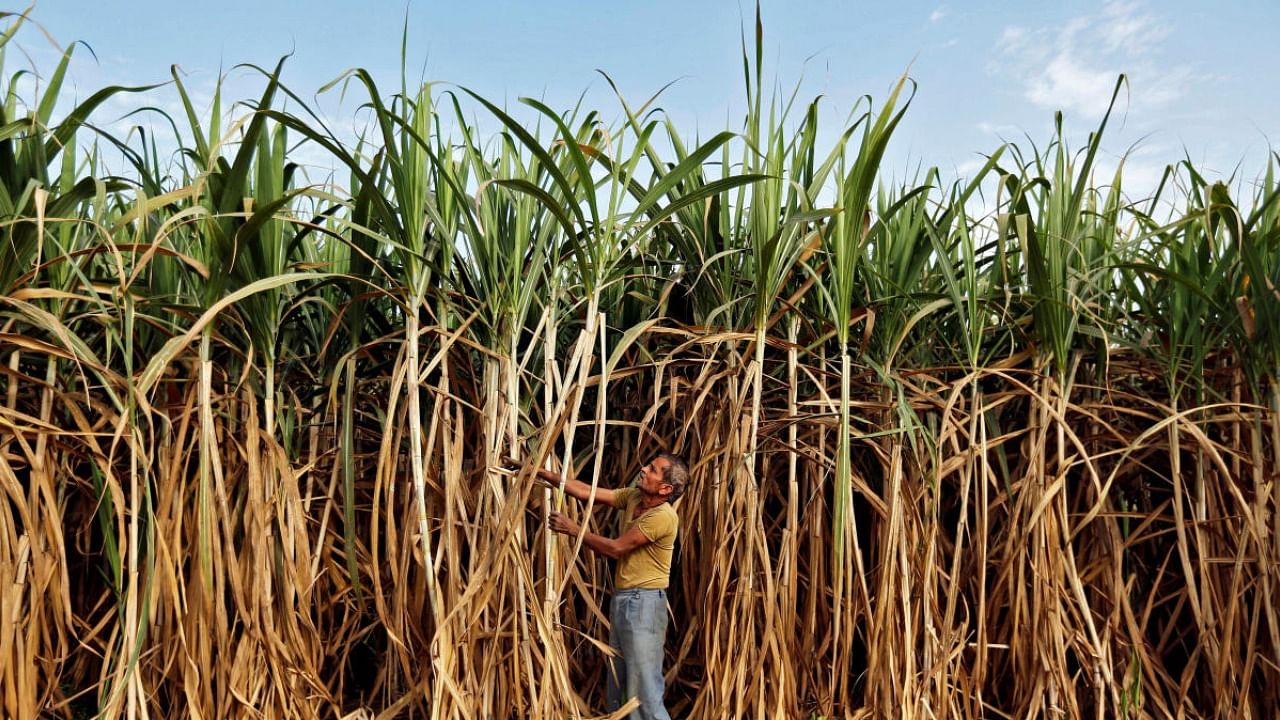
The year was 1987. The government had hiked the power tariff and in protest, a large number of farmers took out a march. The police came in and fired at the protesting farmers, leaving two young men dead – Jaipal, a Jat man from Lisadh village, and Akbar from Simbhalka village.
“That is when the Bharat Kisan Union was born here,” said Kapil Khatiyan, president of the Shamli unit of the farmers’ organisation that Tikait formed.
The symbolism of the deaths of a Jat and a Muslim man unifying farmers under one umbrella is hard to miss. Thirty-five years later, the BKU is hoping for another such unification. This term, the outfit is throwing its weight behind the Jayant Chaudhary-led Rashtriya Janata Dal.
Kapil and the farmers sitting around him say that they regret voting for the Bharatiya Janata Party in 2017. The Muzaffarnagar riots in 2013 had forged a wedge between the communities, and the Jats as well as the BKU supported the BJP.
Shamli, deep within UP’s sugarcane belt, was also one of the places where the mobilisation for the thirteen-month-long farmers’ protest in Delhi was strong. “The farmers here fed the movement for all the 13 months,” says Khatiyan.
Every election season, the focus of Western UP is on the sugarcane belt. Dues of sugarcane farmers are a prime concern. In Shamli alone, Khatiyan says, the sugar mills owe farmers Rs 500 crores.
The area has over 58 seats; the BJP won 50 in 2017. This time though, it is no cakewalk for the BJP. A section of the Jats have consolidated behind the RLD-SP alliance.
The BJP, as a counter move, is reminding its primarily Hindu voter base about the 2013 riots, which left 42 Muslims and 20 Hindus dead. In nearby Thana Bhawan, CM Yogi Adityanath says that voters should help push the 80:20 ratio to 90:10. On the same day, at another rally in Charthawal, he told voters that he knows how to cool the hot tempers of those in Muzaffarnagar and Jalalabad.
In the rally, BJP supporter Naresh, a farmer, says that he has no complaint of agrarian issues. He’s worried about safety. “CM Yogi has just released Rs 9 crore just recently. There’s not much dues left, unlike in previous governments when dues used to accrue for years. What I care about is safety and that CM Yogi has dealt with lawlessness,” he said.
The spectre of lawlessness of the Samajwadi Party is something that RLD will have to negotiate in the region.
While Jats hold 30-35 per cent of the votes in 25 of the 58 seats in Western UP, Muslims form 26.21 per cent of the population. Hindus account for 72 per cent of the population, and the Jatavs from the SC community account for 10-12 per cent of the votes.
At a nearby sugar mill, while selling his produce for Rs 315 a quintal, Akram says he hopes for peace. “They have made brothers here bay for each other’s blood. What we need is a better rate for the sugarcane, we need a lower power tariff,” he says.
UP power minister has promised to lower the power tariff by half, but Shamli farmer Guddo Banat says that the order is yet to come in.
Despite her absence, Mayawati’s vote in the region has not all eroded away. Harkisan, a Dalit farmer, who’s harvesting his crop in his fields just in the outskirts of Muzaffarnagar, says that his village will only vote for Mayawati.
“Only she cares for the oppressed,” he says.
Watch latest videos by DH here: